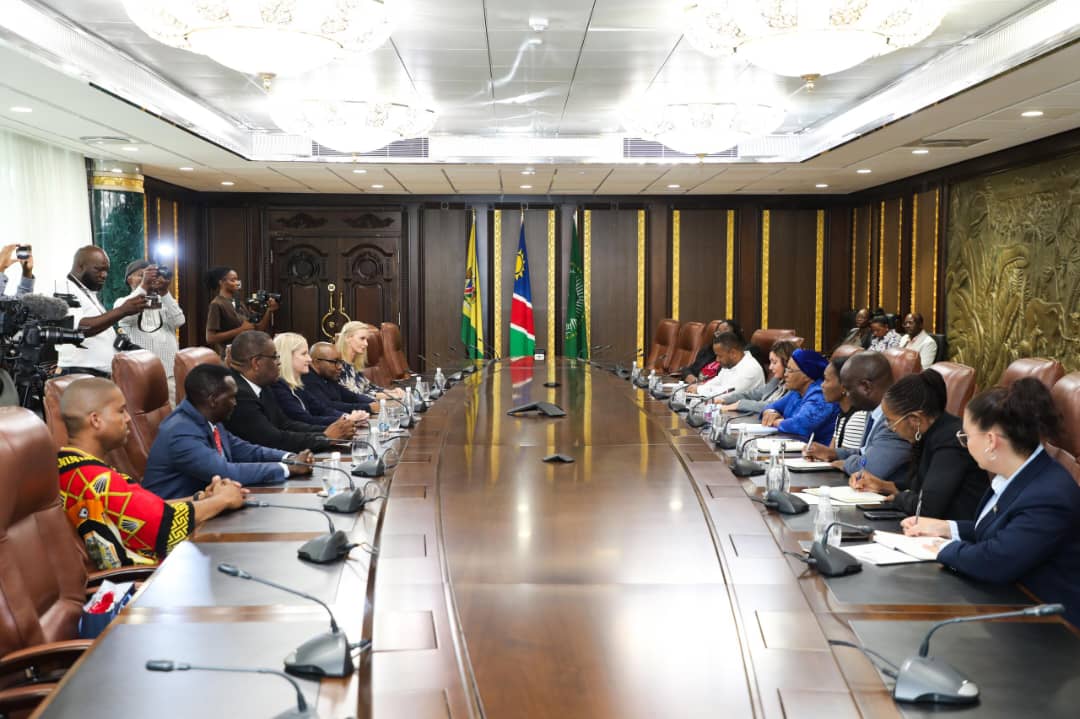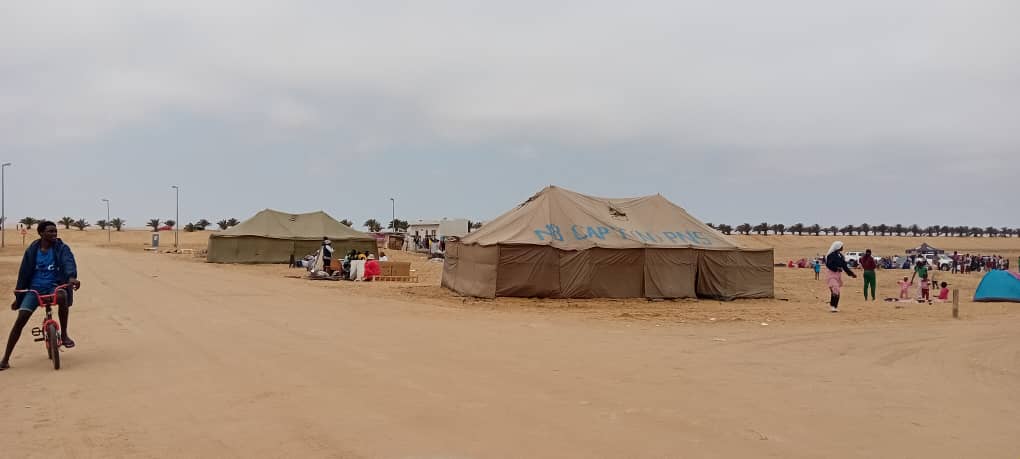BRUSSELS – The United Nations has appealed for governments around the world to do more to respect minority rights after finding that nearly 1 billion people face some form of discrimination.
The annual UN Human Development Report said the need for more tolerant polices was growing as increased immigration means record numbers of people live outside their homelands. “Some 900 million people, about 1-in-7 of the world’s population, belong to groups that believe themselves to be discriminated against or disadvantaged,” said Mark Malloch Brown, administrator of the UN Development Program.The report did not provide a complete breakdown of the figure, but mentioned groups ranging from African-Americans to Eastern European Gypsies, and from Kurds in Turkey to indigenous people in Latin America.Basing its data on research by the University of Maryland, the United Nations pointed to more than 200 groups “that face political disadvantage or discrimination based on ethnic, linguistic or religious identities”.It said 130 million faced direct discrimination as a result of public policy.”The rest are discriminated against because of social customs in the country or the lingering effects of historic discrimination,” the report added.As examples, the report said only two of Brazil’s 33 Cabinet ministers are Afro-Brazilians, although the group makes up almost half the country’s 178 million population.It said Myanmar denied nationality to 250 000 members of the Muslim Rohingya minority, while 300 000 members of the Baha’i religion in Iran are effectively regarded as “non persons”.The report, which monitors development indicators around the world, also intensified its warning from last year that grim news from Africa means the UN “millennium targets” to halve global poverty by 2015 would not be met without radical policy changes.While last year’s report warned it would take Africa until 2147 to reach the poverty target, Malloch Brown said the latest data showed poverty was increasing.”If present trends continue, poverty in African will never halve,” he told a news conference to launch the report.In data released last week Wednesday, the United Nations blamed AIDS for pushing down African development levels.”AIDS is reversing the hard-won gains of recent decades,” Elizabeth Lwanga, deputy director of the UNDP’s Africa office, said at the international AIDS conference in Bangkok, Thailand.Malloch Brown said AIDS was not the only factor holding Africa back.He called for Europe and North America to open their markets to African agricultural exports and said richer nations should invest more in health, education and transport networks in Africa.African governments could help their economies by doing more to fight corruption, he said.For the fourth year in a row, Norway topped the UN development index, which ranks nations according to income, life expectancy and education levels.It was followed by Sweden and Australia.Of the top 20 nations, only Australia, Japan at ninth and New Zealand at 18th were outside Europe or North America.The United States was ranked eighth, a fall of one place from last year.The report was based on 2002 data.The world’s newest nation, East Timor, was included for the first time and was the only non-African nation in the bottom 20.Last on the list for the seventh year running came Sierra Leone, which is struggling to recover from years of civil war.Just above it were Niger, Burkina Faso and Mali.About 30 nations were not included because of insufficient data, including Afghanistan, Iraq and Liberia.The UN ranking showed 13 nations in sub-Saharan Africa registered a decline since 1990.Life expectancy in Angola, Central African Republic, Lesotho, Mozambique, Sierra Leone, Swaziland, Zambia and Zimbabwe fell below 40 – half the level of Japan, whose people live longest.The report focused on the need for cultural diversity and tolerance in a world where immigration is on the increase.It said the world’s nearly 200 countries contain some 5 000 ethnic groups.Two-thirds of all nations have an ethnic or religious minority that makes up at least 10 percent of the population, it said.The report said the number of people living outside their country of birth had more than doubled since the mid-1970s to about 175 million.About 16 million of them are refugees, and around 30 million people worldwide are estimated not to have legal residency in the country where they live.The report’s main author, Sakiko Fukuda-Parr, said nations should follow policies that allow newcomers to integrate into society while keeping their cultural identity.”It is simply not true that multiculturalism leads to fragmentation,” she told reporters.”Embracing diversity is the only sustainable approach to stability, peace, democracy.”She pointed to Canada, Malaysia and Mauritius and Belgium as places with successful multicultural societies.The report said recognition of minority rights increases national unity, rather than weakening it, and said there was little evidence that ethnic differences are themselves a cause of violent conflict.The UN report also looked at the role of women in society.It cited Saudi Arabia, Oman, Pakistan, Yemen and India for “dramatic disparities between their level of human development and gender equality”.- Nampa-AP* On the Net:UN report:http://hdr.undp.org/”Some 900 million people, about 1-in-7 of the world’s population, belong to groups that believe themselves to be discriminated against or disadvantaged,” said Mark Malloch Brown, administrator of the UN Development Program.The report did not provide a complete breakdown of the figure, but mentioned groups ranging from African-Americans to Eastern European Gypsies, and from Kurds in Turkey to indigenous people in Latin America.Basing its data on research by the University of Maryland, the United Nations pointed to more than 200 groups “that face political disadvantage or discrimination based on ethnic, linguistic or religious identities”.It said 130 million faced direct discrimination as a result of public policy.”The rest are discriminated against because of social customs in the country or the lingering effects of historic discrimination,” the report added.As examples, the report said only two of Brazil’s 33 Cabinet ministers are Afro-Brazilians, although the group makes up almost half the country’s 178 million population.It said Myanmar denied nationality to 250 000 members of the Muslim Rohingya minority, while 300 000 members of the Baha’i religion in Iran are effectively regarded as “non persons”.The report, which monitors development indicators around the world, also intensified its warning from last year that grim news from Africa means the UN “millennium targets” to halve global poverty by 2015 would not be met without radical policy changes.While last year’s report warned it would take Africa until 2147 to reach the poverty target, Malloch Brown said the latest data showed poverty was increasing.”If present trends continue, poverty in African will never halve,” he told a news conference to launch the report.In data released last week Wednesday, the United Nations blamed AIDS for pushing down African development levels.”AIDS is reversing the hard-won gains of recent decades,” Elizabeth Lwanga, deputy director of the UNDP’s Africa office, said at the international AIDS conference in Bangkok, Thailand.Malloch Brown said AIDS was not the only factor holding Africa back.He called for Europe and North America to open their markets to African agricultural exports and said richer nations should invest more in health, education and transport networks in Africa.African governments could help their economies by doing more to fight corruption, he said.For the fourth year in a row, Norway topped the UN development index, which ranks nations according to income, life expectancy and education levels.It was followed by Sweden and Australia.Of the top 20 nations, only Australia, Japan at ninth and New Zealand at 18th were outside Europe or North America.The United States was ranked eighth, a fall of one place from last year.The report was based on 2002 data.The world’s newest nation, East Timor, was included for the first time and was the only non-African nation in the bottom 20.Last on the list for the seventh year running came Sierra Leone, which is struggling to recover from years of civil war.Just above it were Niger, Burkina Faso and Mali.About 30 nations were not included because of insufficient data, including Afghanistan, Iraq and Liberia.The UN ranking showed 13 nations in sub-Saharan Africa registered a decline since 1990.Life expectancy in Angola, Central African Republic, Lesotho, Mozambique, Sierra Leone, Swaziland, Zambia and Zimbabwe fell below 40 – half the level of Japan, whose people live longest.The report focused on the need for cultural diversity and tolerance in a world where immigration is on the increase.It said the world’s nearly 200 countries contain some 5 000 ethnic groups.Two-thirds of all nations have an ethnic or religious minority that makes up at least 10 percent of the population, it said.The report said the number of people living outside their country of birth had more than doubled since the mid-1970s to about 175 million.About 16 million of them are refugees, and around 30 million people worldwide are estimated not to have legal residency in the country where they live.The report’s main author, Sakiko Fukuda-Parr, said nations should follow policies that allow newcomers to integrate into society while keeping their cultural identity.”It is simply not true that multiculturalism leads to fragmentation,” she told reporters.”Embracing diversity is the only sustainable approach to stability, peace, democracy.”She pointed to Canada, Malaysia and Mauritius and Belgium as places with successful multicultural societies.The report said recognition of minority rights increases national unity, rather than weakening it, and said there was little evidence that ethnic differences are themselves a cause of violent conflict.The UN report also looked at the role of women in society.It cited Saudi Arabia, Oman, Pakistan, Yemen and India for “dramatic disparities between their level of human development and gender equality”.- Nampa-AP* On the Net:UN report:http://hdr.undp.org/
Stay informed with The Namibian – your source for credible journalism. Get in-depth reporting and opinions for
only N$85 a month. Invest in journalism, invest in democracy –
Subscribe Now!










